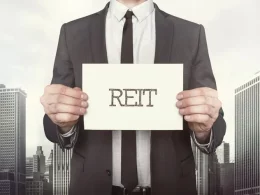Are you tired of worrying about your retirement finances? Do you dream of a comfortable and financially secure lifestyle during your golden years? If so, it’s time to consider using real estate equity to fund your retirement. Real estate has long been known as a reliable investment, and with the right strategy, it can provide significant financial benefits for those looking to retire comfortably. In this blog post, we’ll explore how you can use real estate equity to create an income stream that supports your ideal retirement lifestyle. So grab a cup of coffee and let’s get started!
What is Real Estate Equity?
Real estate equity is the portion of your home’s value that you own outright. It’s the difference between your home’s appraised value and the amount you still owe on your mortgage. So, if your home is worth $250,000 and you have a mortgage balance of $200,000, your real estate equity is $50,000.
If you want to access your real estate equity, you can do so through a home equity loan or a home equity line of credit (HELOC). These are both types of second mortgages that allow you to borrow against the value of your home.
With a home equity loan, you borrow a lump sum of cash and make fixed monthly payments over a set period of time, just like your first mortgage. A HELOC works differently. You’re approved for a maximum loan amount upfront, but you only draw on the funds as needed and make interest-only payments until the repayment period begins.
Both options offer potential tax benefits since the interest you pay may be tax deductible. However, it’s important to remember that taking out a second mortgage entails risks. If you fall behind on payments, you could lose your home to foreclosure.
How to Use Real Estate Equity to Fund Your Retirement Lifestyle
If you have equity in your home, you can use it to fund your retirement lifestyle. There are a few ways to do this:
1. You can take out a home equity loan or line of credit. This will give you access to cash that you can use for anything you want, including funding your retirement lifestyle.
2. You can refinance your mortgage and take out some of the equity in your home as cash. This is a good option if you have a low interest rate on your current mortgage and you want to lock in that rate for the long term.
3. You can sell your home and downsize to a smaller home or an apartment. This will give you a lump sum of cash that you can use to fund your retirement lifestyle.
4. You can reverse mortgage your home. This option allows you to stay in your home and receive monthly payments from the bank based on the equity in your home. The payments will continue until the loan is paid off, which will be when you sell the house or pass away.
Pros and Cons of Using Real Estate Equity to Fund Your Retirement Lifestyle
Assuming you have paid off your mortgage, your home equity can be a powerful tool to help fund your retirement lifestyle. There are several ways to tap into your home equity, each with its own set of pros and cons.
One option is to take out a home equity loan. This can provide a lump sum of cash that can be used for anything from making home improvements to funding a dream vacation. The main benefit of taking out a home equity loan is that it usually comes with a lower interest rate than other types of loans, such as personal loans or credit cards. However, this option also has some drawbacks. First, you will still need to make monthly payments on the loan, which could put a strain on your budget if you are already living on a fixed income in retirement. Additionally, if you fail to make timely payments on the loan, you could risk losing your home.
Another way to access the equity in your home is through a reverse mortgage. With this type of loan, you do not have to make any monthly payments; instead, the loan is repaid when you sell your home or die. This can be beneficial if you want to free up some cash but don’t want the added burden of making monthly payments. However, there are some downsides to consider with a reverse mortgage as well. First, the interest rate on these loans is typically higher than traditional mortgages or home equity loans. Additionally, since the loan does not have to be repaid until after
Alternatives to Using Real Estate Equity to Fund Your Retirement Lifestyle
If you’re looking for alternatives to using real estate equity to fund your retirement lifestyle, there are a few options to consider. One option is to downsize your home and use the equity from your current home to fund your retirement. This can free up some extra cash that can be used for things like travel or hobbies. Another option is to take out a reverse mortgage on your home. This can give you access to the equity in your home without having to sell it. You can also consider selling other assets, such as stocks or bonds, to help fund your retirement lifestyle. Whatever route you decide to take, be sure to speak with a financial advisor to ensure that it’s the best decision for you.
Conclusion
Real estate equity can be a great way to fund your retirement lifestyle. It can provide you with financial stability and the opportunity to invest in assets that will appreciate in value over time. The key is to understand how real estate equity works and how it fits into your financial plan. With proper understanding, planning, and execution of an effective real estate strategy, you could potentially enjoy a comfortable retirement lifestyle without having to worry about running out of money before the end of each month.












